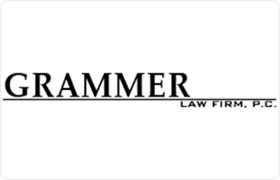Florence County, SC Felony Lawyers
Sponsored Law Firm
-
 x
x

Click For More Info:
-
Grammer Law Firm, P.C.
1700 Oak St Conway, SC 29526» view mapCriminal Proudly Serving Horry County
You need an attorney with criminal defense knowledge who will vigorously protect your rights and interests.
800-957-8401
Not enough matches for Florence Felony lawyer.
Below are all Florence lawyers.
E. Glenn Elliott
Housing & Construction Defects, Insurance, Motor Vehicle, Premises Liability
Status: In Good Standing
T. Brooke Allen
Divorce & Family Law, Wills & Probate, Accident & Injury, Workers' Compensation
Status: In Good Standing Licensed: 20 Years
George Sink
Accident & Injury, Car Accident, Personal Injury, Workers' Compensation
FREE CONSULTATION
CONTACTAkim Anastopoulo
Workers' Compensation, Personal Injury, Medical Malpractice, Car Accident, Accident & Injury
FREE CONSULTATION
CONTACTFinley B. Clarke
Construction, Workers' Compensation, Insurance, Banking & Finance, Products Liability
Status: In Good Standing Licensed: 54 Years
Rose Mary Parham
Income Tax, Landlord-Tenant, Child Custody, DUI-DWI, Medical Malpractice
Status: In Good Standing
 William Grammer Myrtle Beach, SC
William Grammer Myrtle Beach, SC AboutGrammer Law Firm, P.C.
AboutGrammer Law Firm, P.C. Practice AreasExpertise
Practice AreasExpertise
